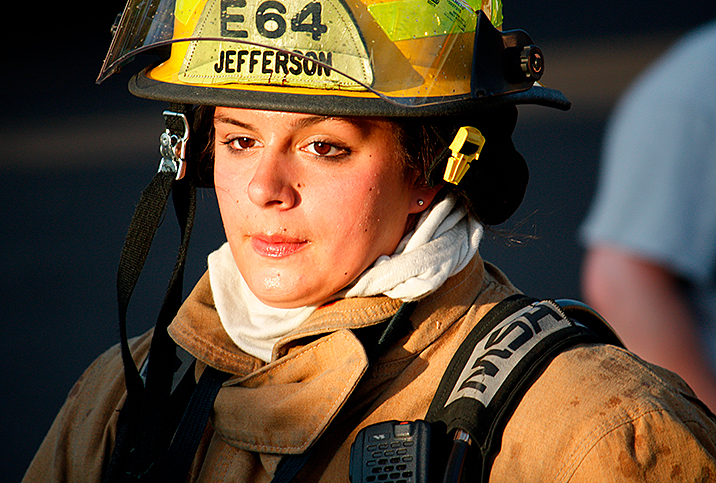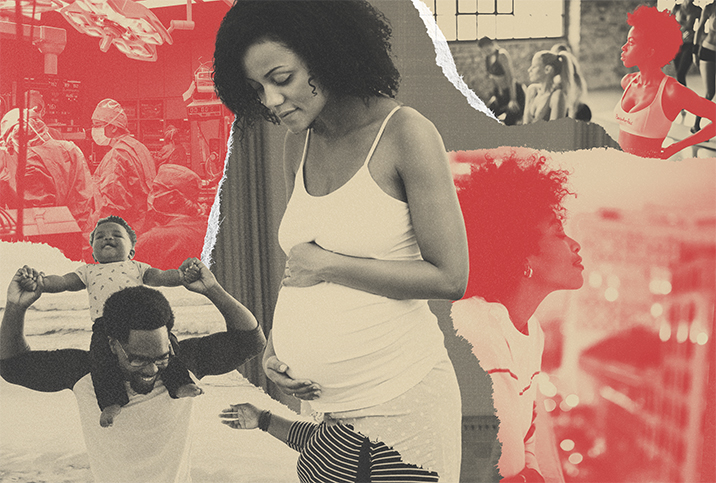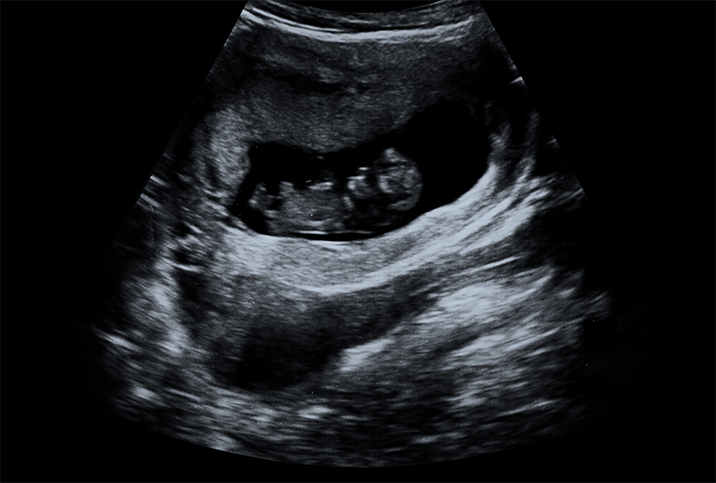Firefighters Face Increased Pregnancy Risks

Considering what "all in a day's work" entails for firefighters—exposure to smoke and all manner of nasty chemicals, physical and emotional exhaustion, long hours, literally running into burning buildings—it's no surprise the job comes with significant health risks.
Researchers have long known firefighters suffer high rates of cardiovascular disease, cancer, substance abuse and PTSD. But emerging research shows there's yet another area of the body the job appears to be affecting: the reproductive system.
While the research and evidence are limited—historically, research into firefighter health has focused on men—pregnant firefighters face an increased risk of miscarriage, preterm labor and other reproductive issues. Now, with a two-year study funded by FEMA looking at stress, cancer and reproductive issues in women firefighters, researchers hope to figure out why.
One of the investigators is Sara Jahnke, Ph.D., director of the Center for Fire Rescue and EMS Health Research at the not-for-profit research firm NDRI-USA. She's led much of this research during the last decade.
Her 2018 survey found elevated rates of miscarriage and preterm birth among full-time firefighters. Participants self-reported 22.6 percent of their first pregnancies ended in miscarriage. The figure increased with each additional pregnancy, up to 31.7 percent for fourth pregnancies. Most participants in Jahnke's study shared they were actively running calls during their first trimester and didn't inform their departments of their pregnancy until the end of their first trimester.
It's common for women to wait until this time to tell people they're pregnant, in large part because most miscarriages occur during the first 12 weeks. "The most vulnerable time is early in the pregnancy—the first eight or 12 weeks—and then at the end of pregnancy," said Scott Sullivan, M.D., professor and vice-chair of the department of obstetrics and gynecology at The Medical University of South Carolina.
For women who know they're pregnant, the rate of miscarriage is about 10 percent. But because many women miscarry very early in pregnancy, before they even realize they're pregnant, the rate for all pregnancies is higher and harder to calculate. Most estimates put this rate around 26 percent. The firefighters in the study self-reported their miscarriages, so clearly those were known pregnancies.
The more chronic, constant parts of the job are less dramatic, but they take a serious toll: the exhaustion from 24-hour or 48-hour shifts, sleep disrupted by middle-of-the-night calls, and stress.
Sullivan called the risk of preterm birth among women firefighters "alarming." The study found rates ranged from 11 percent to 16.7 percent, while the national average is 9.6 percent. Babies born before 37 weeks face a host of potential short- and long-term developmental issues.
"We know other physically demanding jobs have an increase in preterm labor," Sullivan said. "We know people who work night shifts have a higher risk of pregnancy complications. And we know some of the things [firefighters] are exposed to, like, carbon monoxide, chemical exposures and falls can be catastrophic in pregnancy."
So, the reasons for these increased pregnancy complications might seem super-obvious, but it's a common misconception that every shift is a scene straight out of the movie "Backdraft."
Most firefighting calls these days are EMS-related, said Maria Koeppel, Ph.D., a postdoctoral fellow who works on Jahnke's research team and is also a firefighter. The more chronic, constant parts of the job are less dramatic, but they take a serious toll: the exhaustion from 24-hour or 48-hour shifts, sleep disrupted by middle-of-the-night calls, and stress.
"My brain would be so tired and my body would be so tired after a swing [shift], I felt it in my bones sometimes," Koeppel said. Even though most calls aren't inherently traumatic, there's a stress of being "on" for 24 hours at a time during a shift and never knowing for sure what you're stepping into on a call. "You are responding to people in their worst times and in their times of need," she said.
These core components of firefighting—shift work, poor sleep, and stress—can lead to problems in pregnancy, too, including preeclampsia, gestational diabetes, miscarriage and preterm labor.
Researchers don't have definitive answers yet, but they hope finding them will allow departments to better mitigate the risks of the job. "Ultimately, the goal of this research is to make sure that women can have the opportunity to have a family and have children and also do their job as firefighters safely," said Leslie V. Farland, Sc.D., an assistant professor at the University of Arizona Mel and Enid Zuckerman College of Public Health who's working with Jahnke on the two-year study.
They also hope their research spurs the fire service to develop a comprehensive, standardized maternity policy, to give pregnant women and their departments concrete guidelines for when pregnant women should go off the line, what meaningful work they'll be assigned to do instead, when they can return to the line postpartum, among other concerns.
"The fire service needs more women who are interested in doing it," Jahnke said, "but we can't say in one breath, 'We want more women in the fire service,' and in the second breath, 'but we don't want to have to support them.'"


















